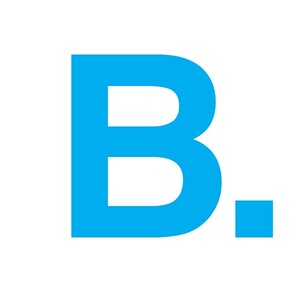Application deadline: June 1, 2017
Julianalaan 134
Faculty of Architecture and the Built Environment, Delft University of Technology
2628 BL Delft
The Netherlands
The Berlage Master of Science in Architecture and Urban Design
The Berlage announces the final call for 2017 applicants to its postmaster’s program, which consists of three semesters of full-time study after which students receive a Master of Science in Architecture and Urban Design degree, accredited by Delft University of Technology. The Berlage encourages its students to operate disruptively from the mainstream, to adopt speculative positions that generate provocative and original architectural projects. The Berlage seeks applicants who are imaginative and self-motivated, who are prepared to work both individually and collectively across a series of design-based projects, proseminars, fieldwork excursions, and master classes, and who are eager to participate in a series of rich and diverse public program.
Bare Necessities
From 2016–2019, the Berlage is structured around a multiformat thematic program called Bare Necessities, revisiting the preoccupations of architectural modernism—commerce, housing, leisure, transportation, and work—examining their sources, processes, and legacies, and assessing their influence on contemporary practice.
Fall 2017 semester: cultures, methods, and instruments
Students will seek to identify and design Measured Relations, focusing on those fundamental measurements that underlie and influence contemporary architectural design, production, and thinking. They will follow Project NL, a semester-long project that traces architectural dimensions as they connect daily habits to distribution networks and systems of governance in the Netherlands, from the Golden Age to its present reality. The notion of Measured Relations will be expanded and defined by public lectures, excursions, and workshops. Students will follow two proseminars interrogating the disjunction between theory and practice and examining how the profession can act purposefully within a changing climate of planning and construction. Students will also follow a research colloquium exploring the culture, methods, and instruments of the architect, from archival research to the speculative design. They will also undertake a fieldwork excursion, visiting canonical and overlooked modern architecture and urban design projects in the Czech Republic.
Spring 2018 semester: societies, environments, economies
In Project Global, students will develop counter-proposals and anti-theses to contemporary master plans for Buenos Aires and London. They will explore the periphery to design New New Towns, considering how the creation of new communities in the Green Belt and on the Pampas affects both cities and their territory. Students will participate in fieldwork excursions to Buenos Aires or London in order to meet and work with local experts and stakeholders. In turn, these local experts will lead a series of weeklong design charettes and review sessions in the Netherlands. The notion of New New Towns will be expanded and defined by public lectures, excursions, and workshops. Alongside Project Global, students will follow a proseminar considering the reciprocal relationship between metropolis and the hinterland in which their projects are located. Students will also follow a series of Thesis Preparation workshops in order to generate research hypotheses and design directions that will guide their third and final thesis semester.
Fall 2018 semester: final thesis
Based on tools, positions, and preoccupations refined during in the first two semesters, this final term of study is dedicated to developing student’s own Thesis Project in detail, under a collective framework. Students will be encouraged to be highly experimental and speculative, engage in wide-ranging and multidisciplinary research, adopt a position between theory and practice, whilst creating visually compelling and intellectually rigorous projects.
Master classes
Additionally, twice a year students will work with world-renowned architects, designers, and thinkers in an intensive workshop setting to analyze a relevant issue in the built environment, experimenting with alternative formats of representation and dissemination. Recent master classes have been led by Assemble, Beatriz Colomina, Reinier de Graaf, Herman Hertzberger, Madelon Vriesendorp, and Natalie de Vries.
Public program
Each semester, a public program will foster a climate of intellectual rigor and deliberate inquiry that challenges both the traditionally conceived discipline of architecture, and the production of the built environment at large. Recent lecturers include Kunlé Adeyemi, Tatiana Bilbao, Tom Emerson, Pol Esteve, Anne Holtrop, Francesca Hughes, Louisa Hutton, and Jonathan Sergison.
Teaching staff
Regular teaching staff include Tom Avermaete, Ido Avissar, Salomon Frausto, and Thomas Weaver. Recent guest critics include Alessandra Cianchetta, Atelier Bow-Wow, Jean-Louis Cohen, Lars Lerup, Jonas Nørsted, and David van Severen.
About the Berlage
Founded in 1990 as the Berlage Institute, the Berlage Center for Advanced Studies in Architecture and Urban Design, located in Delft, educates architects in a highly collaborative and experimental setting, characterized by guidance from and exchange with leading and emerging designers and scholars. Since 2012, students have benefitted from the world-class facilities of TU Delft, as well as close exchange with its academic staff and students.



